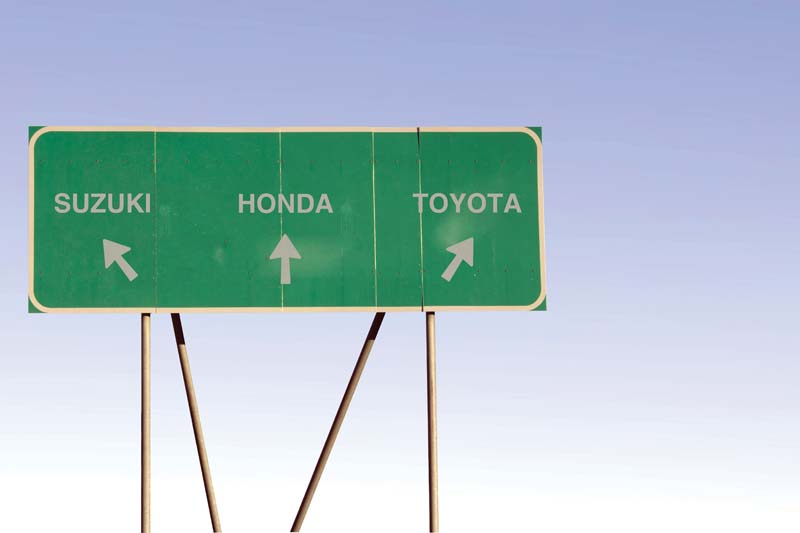
No one likes being restricted especially when there are options available.
Pakistani consumers, however, are when it comes to the automobile market. Dominated by Japanese brands, the auto sector - we speak of passenger sedan vehicles - offers a limited variety. This is where the segment of imported vehicles manages to make a mark and take advantage of the void.
While the influx of imported used vehicles has grown over the years - market data shows 39,000 of them arrived in Pakistan in fiscal year 2015 - the surprising bit is that sales of locally assembled vehicles have increased during the same time as well. From 82,844 units sold in 2008-09 - according to the Pakistan Automotive Manufacturers Association - the number has jumped to 151,134 in 2014-15.
Read: German car makers to buy Nokia map service for $3.1 billion
It is simple enough to realise that the market is hungry for cars and choices. Given the air was buzzing with reports of a German manufacturer making its way to Pakistan, The Express Tribune spoke to Audi, the German automobile manufacturer that oversees its operations in Pakistan through its exclusive importer Premier Systems (Pvt) Ltd.
Ali Khan, the Audi country manager for Pakistan and Bangladesh, said the current duty structure, which places imported vehicles in slabs according to engine size, needed to be revised.
“The system doesn’t work since cars have been divided in a wrong manner [in the duty structure],” Khan told The Express Tribune. “When you speak to someone in the government ranks with regards to the auto policy, they say that we are working towards “Vision 2025” where they see more entrants.
“But when you ask them who has been brought in to formulate the vision, the government says ‘their own experts’. No real expert from the advanced auto industries in other countries has been consulted.
“I know that the government is bent on bringing in a European manufacturer come what may. They want to say that they were the ones who brought a foreign brand in Pakistan.
“But I believe this is being done the wrong way. The Germans will not be able to build cars here since fuel emission standards, set by the European Union, are not being followed. The material, mostly aluminum, used in German cars is not present in abundance either. So completely knocked down (CKD) units is out of the question.
“The argument will then come down to whether Pakistan can set up a facility for a German manufacturer where semi-knocked down (SKD) units can be put together. But there is no policy that makes such a provision. Therefore, it’s the policy that needs to be updated before a German manufacturer can be asked to come here.

“Other countries in the region also import SKDs and have a clear-cut slab for it. They are then able to use the ‘made in’ label.”
Asked what it would take for German manufacturers to set up their plants in Pakistan, Khan simplified that all the country needed was to make a provision for importing SKDs.
Read: VW’s Audi to push up investment by $2.44b
“We asked them for a change in policy. Rumour has it that this auto policy will include the permission to import SKDs. If that happens, we would be the first ones knocking on their doors. In fact, Audi won’t be the only manufacturer to jump on this opportunity.”
Pakistan a ‘success story’
Meanwhile, despite Pakistan being restricted to only importing the vehicle, its market was labelled a “true success story” by Audi Germany.
“Pakistan is among the fastest growing markets in the region,” said Christine Bulang, sales manager for the South East Asia and Taiwan region, in an emailed response to The Express Tribune. “We definitely appreciate this development even the more since we are aware of the complexity of the market and its challenges.”
But Bulang added that while “Audi is constantly evaluating new opportunities on a worldwide basis, there haven’t been any investment plans into a plant in Pakistan.”
Published in The Express Tribune, August 12th, 2015.
Like Business on Facebook, follow @TribuneBiz on Twitter to stay informed and join in the conversation.
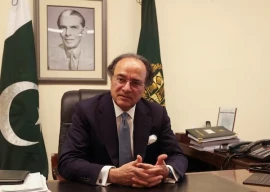



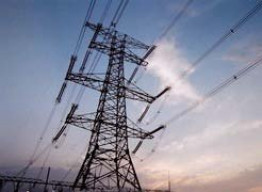

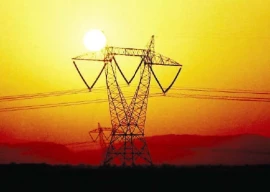
1721576508-0/drake-(2)1721576508-0-270x192.webp)


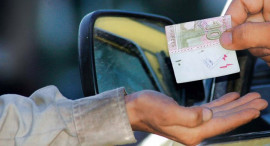
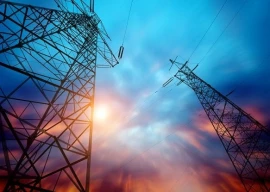






COMMENTS (25)
Comments are moderated and generally will be posted if they are on-topic and not abusive.
For more information, please see our Comments FAQ